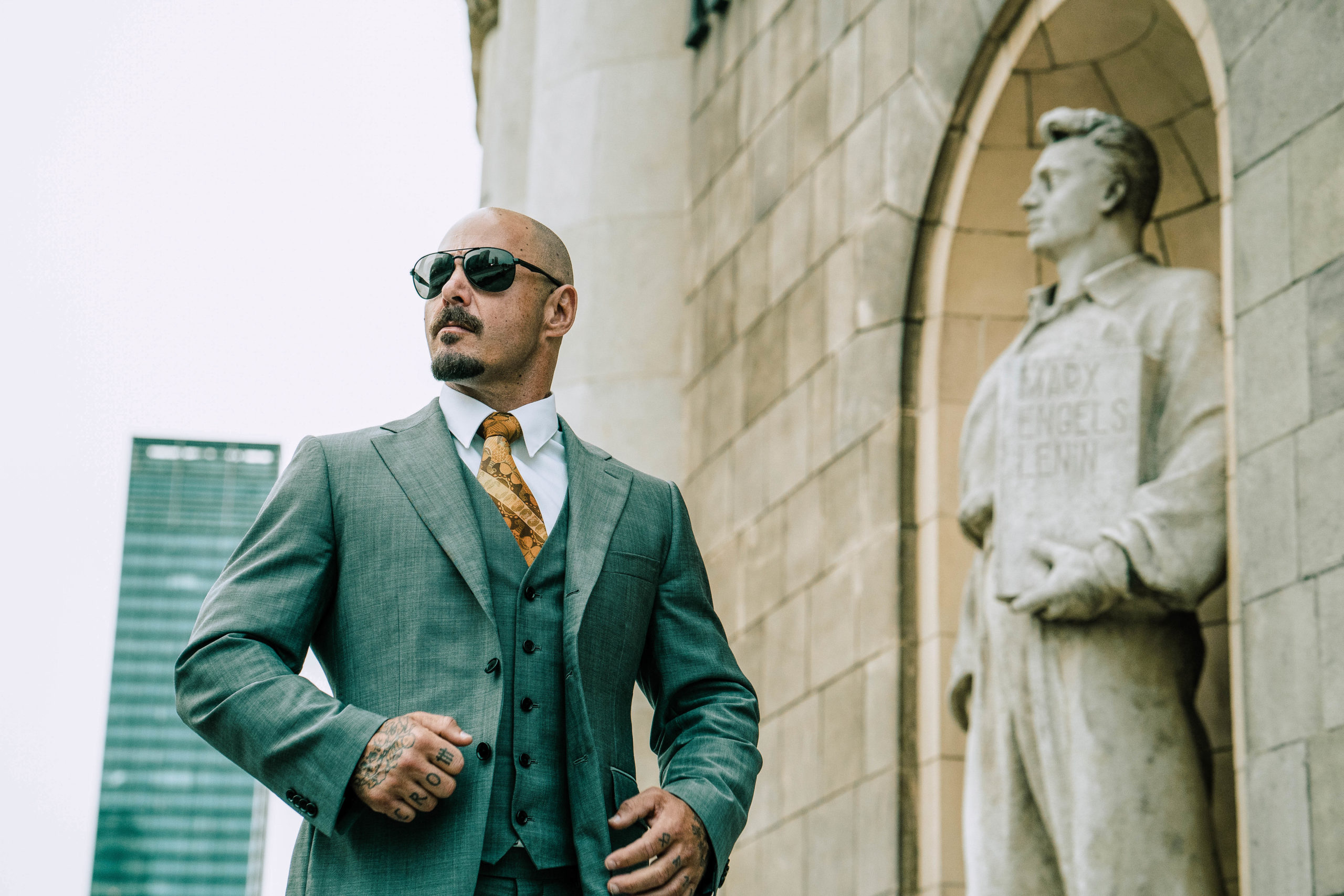Whose Man Are You?

It started out as a joke. An insult.
“Whose man is this?”
“Who is responsible for this mess of a man?”
I don’t think I’ve laughed as hard as I laughed that night in a very long time. The same joke in endless variation, all night long, with all kinds of confused and archaic grammar.
“Whose man are you?
“Whose mans are we?”
“Whose phones are we?”
Good jokes are funny because there is truth in them.
I was hanging out with a handful of friends at Waldgang, meditating on the nature of Lord Ingwaz, or Freyr, or *Fraujaz, depending on which name you like best. He’s associated with nature and fertility, and the tendency with *Fraujaz is to focus on agricultural and seasonal cycles. However, Freyr — whose name means “lord” — is also associated with lordship and leadership in this world. My mind eventually turned to the concepts of lordship and leadership and fealty and “belonging.”
“Whose man are you?,” is a crisis of modernity. Everyone wants to belong and to fit in somewhere — to find an anchor and a place and an identity. Men seek out groups of men to help them locate themselves in the universe, because that is the way we have always survived. It is in our nature to do so.
The Way of Men is the Way of the Gang.
We feel more comfortable and less vulnerable and more at home in the world if we have some kind of close-knit group — some sense of brotherhood.
Where there is a need, there is a market, and opportunists looking to exploit it.
If the monkey wants a banana badly enough, it’s easy to make him dance.
Brotherhood is a banana that every man wants.
Sometimes it develops organically. This is probably the best and most truthful kind of brotherhood. Friendships develop over time and are tested by life, and you demand more of each other and make each other better and hold each other accountable, and eventually there is a loyalty there that you’re not willing to compromise. Those men become part of who you are. This is an informal honor group.
Often, brotherhood is created artificially by institutions — the military, fraternal orders, gangs, clubs and so forth. A social technology has been developed, and if you observe how this is done and have the audacity to use that technology, you can indoctrinate and test and initiate men who are looking for belonging into a formal brotherhood — a formal honor group.
Formal brotherhoods are often fealties disguised as brotherhoods. Most people want to be told what to do. It’s not even fair to stigmatize that, because it is a human norm.
Even the most self-aware followers are attached to the romance of self-determination. One of the best ways to manipulate people is to convince them that your idea was actually their idea. Pretenses of democracy and collectivism are flattering, ego-affirming fictions.
“Whose man are you?”
“We are our own men. We belong to each other.”
“Nah. That charismatic guy out in front, the leader, the one who you are copying and who you want to impress so desperately — you’re HIS men.”
That is probably a hard pill to swallow.
But there is something more honest about fealty than there is about most organizations that call themselves “brotherhoods.”
Some guy messaged me recently, telling me I should join this group he was affiliated with. It was probably a criminal organization, though it was never named. He was really excited about it.
The new guys trying to get into those organizations always tell me that, “it’s not like you think it is.” Of course, no one ever tells the new guys how it really is until…after they sign on.
I certainly didn’t want to get in between him and whoever had him on the line. So I told him it wasn’t my thing.
What I wanted to tell him was that he was probably going to go to prison saying “brotherhood” while his new “brother” smiled knowingly, fingering a fresh roll of hundred dollar bills.
But as I said, most men want to be given a purpose and told what to do. Is it wrong to give them what they want?
This is one of the deeper ethical questions of lordship.
Most lords have always been middle managers. They held authority under someone else’s authority.
I was listening to Jocko Willink’s book Extreme Ownership recently, and he made the point that a good l eader has to find a way to “believe in the mission” so that he can convince his men to believe in the mission and get the job done effectively. To do that, Willink looked for the wisdom and benevolence in a given leader’s master plan.
eader has to find a way to “believe in the mission” so that he can convince his men to believe in the mission and get the job done effectively. To do that, Willink looked for the wisdom and benevolence in a given leader’s master plan.
Most people want to believe that they are good and decent people. Most leaders want to be wise and benevolent leaders. Some genuinely try to do the right thing and are willing to take the heat when they don’t — which is basically what Jocko’s book preaches.
Some leaders know they are sending men to their doom, and convince themselves — perhaps rightly, perhaps wrongly — that they are doing it for the greater good.
Sometimes they know they are doing it to save their own asses or serve their own immediate interests.
Sometimes they just don’t give a shit.
There’s nothing wrong with fealty groups.
It’s an un-American concept, but American men are still men and historically this is pretty normal male behavior.
“Whose man are you?”
“I’m HIS man!”
It’s tidy and not necessarily something to be ashamed of. Men used to ride into battle under the banners of lords and kings. It was glorious! Given the amount of loyalty and emotional investment people give to corporate sports franchises or political parties … I’m not sure how an explicit cult of personality is any worse or more laughable.
Everyone wants to be an “alpha,” but “alpha” is a position, and a group full of “alphas” is a group with too many chiefs and not enough Indians. Someone is almost always in charge, and when they claim they aren’t, they are usually playing a much more elaborate and disingenuous game.
My advice here is simply, “know thyself.”
And read the fine print. Make sure you know who you are giving your allegiance to, and why. There are benevolent leaders and exploitative leaders and leaders who are just passing through. Most are probably a combination of all of the above.
If you’re going to offer fealty to someone or a group of people, he/they also owe you something in return. Is that lord going to protect your farm and your family in exchange for your allegiance? Is he offering something of value beyond a good feeling and a pat on the back?
It’s a reciprocal relationship. If it’s not, you’re a voluntary slave, and you should probably move on.
X
“maður er manns gaman” (Hávamál) and Homō hominī lupus (Latin Proverb) are both true.




